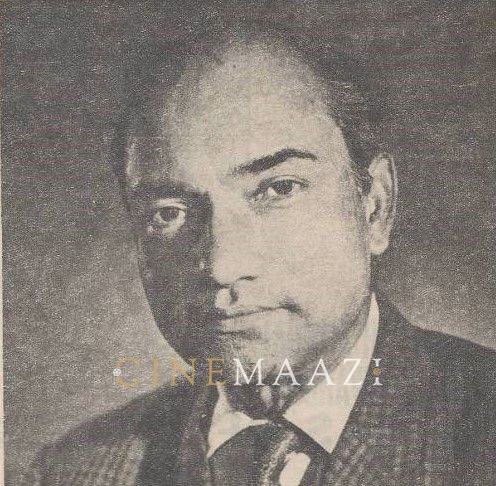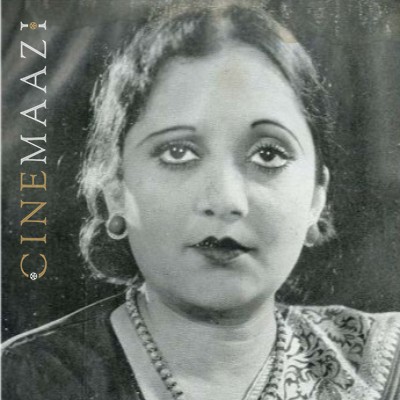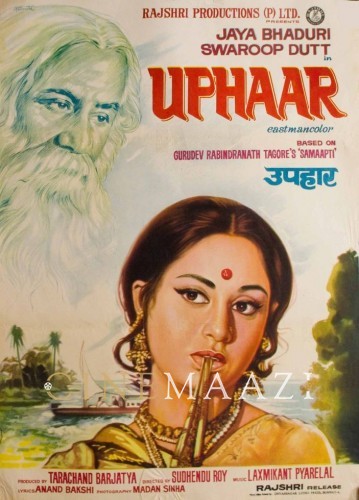Radhu Karmakar

Subscribe to read full article
This section is for paid subscribers only. Our subscription is only $37/- for one full year.
You get unlimited access to all paid section and features on the website with this subscription.
Not ready for a full subscription?
You can access this article for $2 , and have it saved to your account for one year.
- Real Name: Radhika Jiban Karmakar
- Born: 14 October 1919 (Dhaka, Bangladesh)
- Died: 5 October 1993
- Primary Cinema: Hindi
- Parents: Bani Karmakar
- Children: Krishna Gopal Karmakar, Brojo Gopal Karmakar, Sudevi Karmakar, Radha Banerjee, Meera Choudhuri
Most famously associated with Raj Kapoor, Radhu Karmakar was one of the chief architects of the star’s golden era image. He worked with Raj Kapoor in all his films, becoming an integral member of his team. A superlative cinematographer, he won the Filmfare Award for the same four times.
Born as Radhika Jiban Karmakar in Gramwari, Dhaka to a family of goldsmiths, he started his career as a lab technician in Calcutta. He had always been passionate about photography and left home after marriage. He was only sixteen when he left home for work. He was an assistant to another renowned cinematographer – Jatin Das. When Das moved to Bombay in 1940, Karmakar followed in his footsteps. He initially joined Nitin Bose in Bombay Talkies, working in Kismat Ka Dhani (1945). He then shot the Tagore adaptation Milan (1946). His skill at handling the night sequences and high contrast lighting earned him praise. Raj Kapoor was impressed by his work and offered him the cinematographer’s role in Awara (1951). Following the massive success of Awara, he became Raj Kapoor’s regular cinematographer.
His oeuvre of films included classics like Shree 420 (1955), Jagte Raho (1956), Sangam (1964), Sapnon Ka Saudagar (1968), Mera Naam Joker (1970), Bobby (1973), Satyam Shivam Sundaram (1978), Love Story (1981), Prem Rog (1982), Ram Teri Ganga Maili (1985) and Henna (1991). He won the Filmfare Award for Best Cinematography four times – for Shree 420, Mera Naam Joker, Satyam Shivam Sundaram and Henna. He also directed 1960 hit Jis Des Men Ganga Behti Hain (1960), earning a National Film Award for Best Hindi Feature Film. He won his second National Award for his camerawork in Raj Kapoor’s magnum opus Mera Naam Joker.
His illustrious career, though, was cut short when he passed away in a car accident in the Bombay Pune road on 5 October 1993. His last released film was Param Vir Chakra (1995) for which he was given a Special Jury Award at the 42nd National Film Awards.
-
Awards (6)

National Film Awards, 1960
Best Feature Film in Hindi: Jis Desh Men Ganga Behti Hai (1960)
National Film Awards, 1970
Best Cinematography Award: Mera Naam Joker (1970)
Filmfare Awards, 1970
Best Cinematography Award: Mera Naam Joker (1970)
Filmfare Awards, 1991
Best Cinematography Award: Henna (1991)
Filmfare Awards, 1955
Best Cinematography Award: Shree 420 (1955)
Filmfare Awards, 1978
Best Cinematography Award: Satyam Shivam Sundaram (1978)













.jpg)



